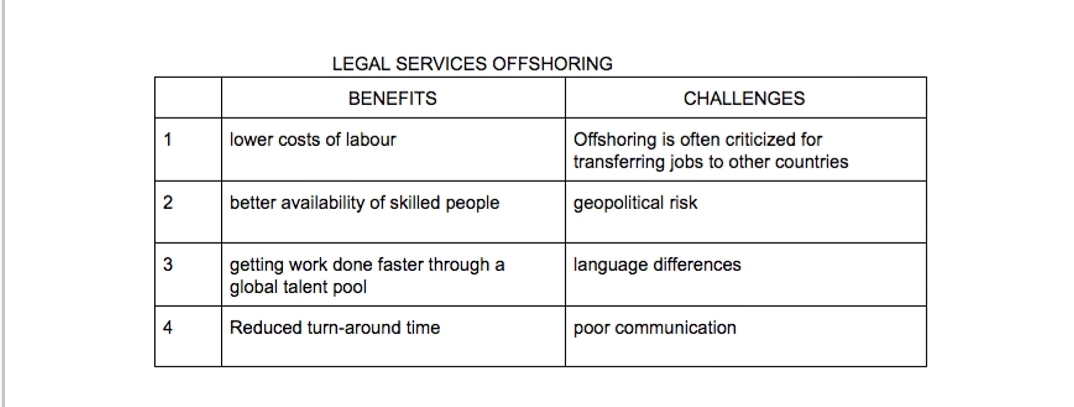
A bit of curiosity got me thinking
and trying to understand the difference between Legal Process Outsourcing and
Legal Service Offshoring. I did a bit of research and then thought to share my
now better grasp of both concepts.
Legal Process Outsourcing refers to assigning
law-related tasks to an external firm (locally or globally) that is able to
handle those tasks efficiently. Legal Services Offshoring refers to getting
your legal work done in a different country, usually to leverage cost
advantages.
law-related tasks to an external firm (locally or globally) that is able to
handle those tasks efficiently. Legal Services Offshoring refers to getting
your legal work done in a different country, usually to leverage cost
advantages.
I know they really seem alike, but
one differentiating element turns out to be LOCATION.
one differentiating element turns out to be LOCATION.
For example, let’s assume a tech
company in Nigeria decides to contract a law firm in Nigeria to carry out all
law-ish activities, now that’s outsourcing. But in the case where the same tech
company contracts a law firm in India to carry out the law-related tasks,
that’s offshoring.
company in Nigeria decides to contract a law firm in Nigeria to carry out all
law-ish activities, now that’s outsourcing. But in the case where the same tech
company contracts a law firm in India to carry out the law-related tasks,
that’s offshoring.
Yea, I know it still sounds
somehow….
somehow….
Okay,
let’s look at some of the benefits and challenges for both concepts.
let’s look at some of the benefits and challenges for both concepts.


This
is what I think. Whether you decide to outsource or offshore your legal tasks,
you should really consider the following:
is what I think. Whether you decide to outsource or offshore your legal tasks,
you should really consider the following:
1. Competence and
efficiency of the contracting firm
efficiency of the contracting firm
2. The flexibility of
communication between both parties (to what extent would technology be
leveraged to enhance communication)
communication between both parties (to what extent would technology be
leveraged to enhance communication)
3. The flexibility of
availability for both parties (for instance, in the case of emergency sit-down
talks)
availability for both parties (for instance, in the case of emergency sit-down
talks)
4. Confidentiality and
Information security ( your data should be really important to you)
Information security ( your data should be really important to you)
5. Laws and regulations
that would guide such contractual relationship
that would guide such contractual relationship
6. Your own peace of mind.
Thanks
for reading!
for reading!

